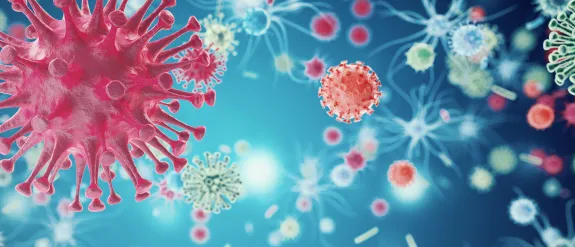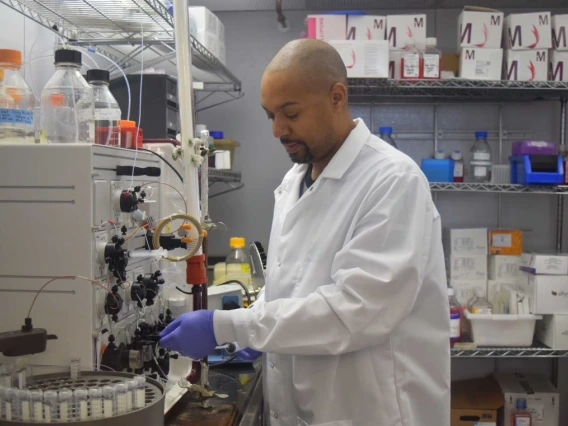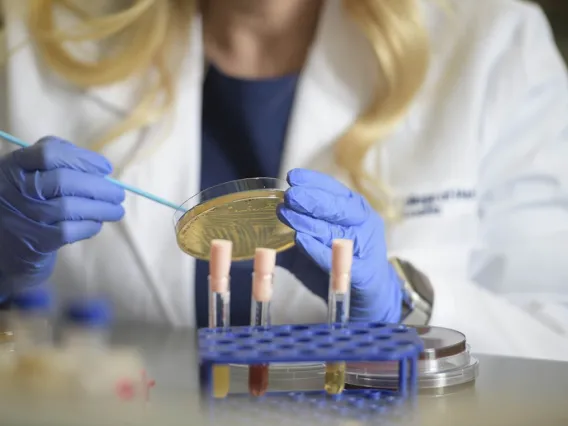
Infectious Disease & Microbiome
Infectious diseases are the major causes of death in low-income countries, and emerging diseases threaten countries worldwide. Our interdisciplinary scientists at the BIO5 Institute have expertise in immunobiology, ecology and evolutionary biology, animal and comparative biomedical sciences, public health, and other areas that push the boundaries of knowledge around dangerous illnesses.
For example, in Arizona, the impact of Valley fever offers a model of success in understanding the biological processes that shape the development of novel treatments. Meanwhile, our scientists are learning more every day about the role of the human microbiome (both bacteria and viruses), which has been shown to affect both health and behavior, particularly for diseases that are considered to result from a combination of genes, environment, and lifestyle.
Our scientists and innovators are shaping the path of infectious disease understanding, prevention, and treatment.
- Our researchers isolated and identified the virome of the human lung in health and infection.
- We are leaders in understanding how the gut-brain interface is modulated by bacteria or in modeling the spread of infectious agents.
- Scientists are collaborating to understand how variation in the mosquitos in Arizona may inform strategies to stop the transmission of Zika, keeping Arizona free of this disease.



